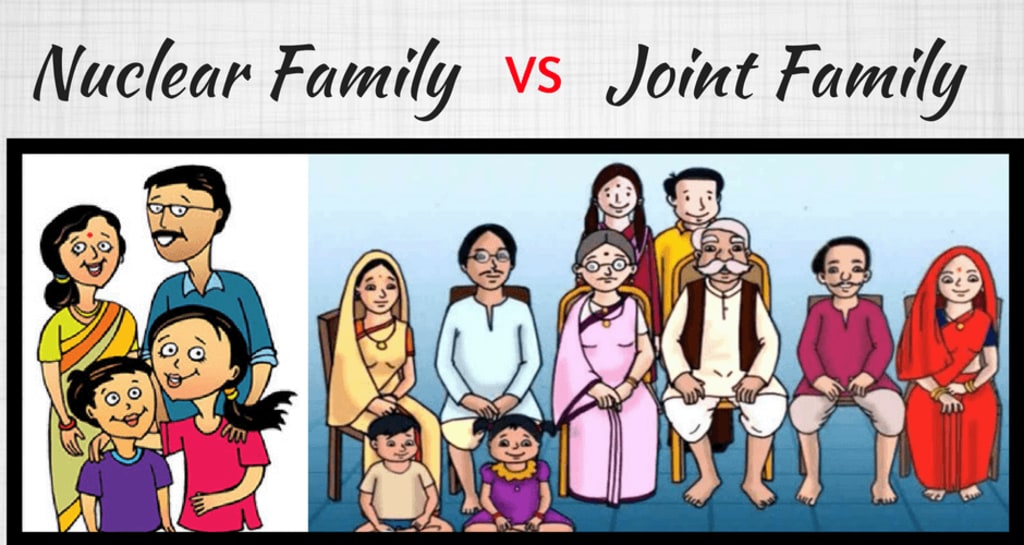
In a small town nestled within the heart of Pakistan, a young couple named Aisha and Fahad embarked on a journey that extended beyond the confines of their love. United by marriage, they found themselves navigating the intricate paths of the traditional Pakistani joint family system. This tale is one of the benefits and disadvantages that unfolded in their lives, as they embarked on this unique chapter.
Benefits:
Harmony in Unity: The joint family system, deeply rooted in the cultural fabric, offers unparalleled companionship. Elders and younger members of the family coexist under one roof, fostering a sense of unity that transcends generations. Aisha and Fahad found solace in the company of their elders, soaking in the wisdom and experience that surrounded them.
Shared Responsibilities: As Aisha stepped into the shoes of a new daughter-in-law, she was welcomed into a network of support. The division of labor and shared responsibilities helped ease the burden of household chores. A sense of communal effort prevailed, as every member contributed to maintaining the house and nurturing the family bonds.
Financial Cushion: The joint family system brought financial stability. Fahad and Aisha's combined income, along with that of other working family members, ensured a secure environment. This financial cushion allowed them to invest in their dreams, whether it was saving for a new house or pursuing higher education.
Disadvantages:
Privacy's Erosion: Aisha soon realized that privacy became a luxury. The open nature of the joint family system meant that every joy, sorrow, and decision became a collective affair. From personal conversations to intimate moments, there was little room for privacy, leading to occasional discomfort.
Conflicting Perspectives: While diversity of opinion is a hallmark of any family, the joint family system magnified differences. As Fahad and Aisha tried to make independent choices, they encountered resistance and conflicting viewpoints from their extended family. Balancing individual aspirations with family expectations became a delicate act.
Limited Autonomy: As Fahad and Aisha sought to chart their own course in life, the joint family structure presented a challenge to their autonomy. Making decisions, be it financial investments or career choices, often involved navigating a complex web of approvals and opinions, which at times hindered their personal growth.
In their journey, Aisha and Fahad discovered that the Pakistani joint family system bore both the fragrance of unity and the thorns of challenges. As they embraced its intricacies, they found themselves straddling the line between tradition and modernity.
Finding Middle Ground:
Amidst the benefits and disadvantages, Aisha and Fahad discovered that balance was the key. They learned to honor the wisdom of their elders while asserting their independence. Open communication became their compass, helping them address concerns and build bridges of understanding.
The Joy of Compromise: While compromising on certain aspects of their independence was inevitable, Aisha and Fahad found that it wasn't a loss but a gain. In the act of compromise, they nurtured the bonds that united their family. They realized that adjusting their sails was not a surrender but a tribute to the harmony they cherished.
Carrying Traditions Forward: Recognizing the beauty of the joint family system, Aisha and Fahad ensured that they imbued it with their own values. They respected customs while also creating new traditions that reflected their evolving identities as a couple.
Championing Autonomy: Aisha and Fahad demonstrated that autonomy could thrive within the joint family system. By openly communicating their aspirations and plans, they gained the support of their elders. Slowly, the family understood that supporting their individual dreams only fortified the family's foundation.
As the seasons changed, Aisha and Fahad's journey continued, marked by the ebb and flow of joys and challenges. They realized that the Pakistani joint family system wasn't a rigid structure but a melody that could be harmonized with their dreams. With each note they added to the melody, they proved that unity and individuality could dance together in the rhythm of life.
In this story of Aisha and Fahad, the benefits and disadvantages of the Pakistani joint family system after marriage are threads that weave a tapestry of love, growth, and adaptation. It is a tale that celebrates the rich cultural heritage while embracing the winds of change that sweep across generations.
About the Creator
Mom Here
I am Aisha the captivating voice behind the screen! With each blog post, I'll take you on a mesmerizing journey of creativity and emotion. I also enjoy collaborating with software providers and tell stories about their digital products.






Comments (1)
Mom Here is not accepting comments at the moment
Want to show your support? Send them a one-off tip.